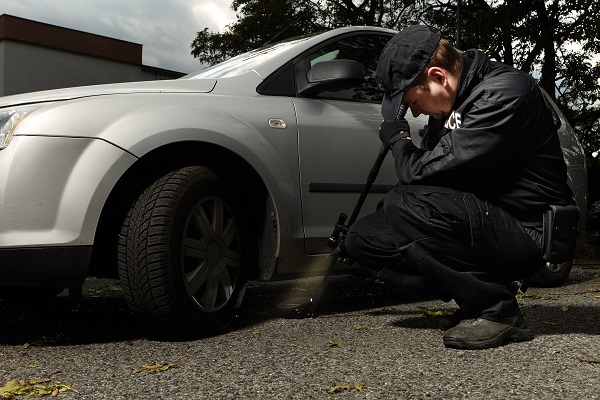Exceptions to the Warrant Requirement for Drug Searches

While most of the time law enforcement need a warrant to conduct drug searches, several exceptions to the warrant requirement exist. Evidence collected without a warrant when one was required can be suppressed in court. Some of the most common exceptions to the warrant requirement for drug searches include: 1) plain view, 2) a search incident to arrest, and 3) an automobile search.
- Plain View
Law enforcement officers do not need a warrant when evidence or contraband is in plain view when they are present. For example, if a police officer questions someone inside his house and sees a pipe and a baggie of marijuana sitting on a side table, he does not need a warrant to seize these items. He can charge you with possession as well.
For any items observed in plain view, it must be immediately apparent that they are evidence or contraband. In other words, police must have probable cause to believe the items are connected with a crime. The police cannot commit any acts that would otherwise require a warrant in order to discover the evidence in plain view. For example, they could not enter someone’s house without a warrant if they saw through a window that a baggie of marijuana was inside the house (unless some other warrant exception applied). They also cannot open closed containers to see if there is evidence inside.
- Search Incident to Arrest
Police do not need a search warrant to search you after arresting you. This is called a search incident to arrest. They can pat you down or do a more detailed search. If they find any evidence of a crime, such as drug paraphernalia, on your person during the search, they can seize that evidence.
Depending on the situation, sometimes police can search the area around a person when he is arrested. For example, courts have found that police can search the entire passenger compartment of a car, including the glove compartment, when they arrest a driver or passenger. The driver must be within reach of the passenger compartment during the search, or police must reasonably believe that the car contains evidence of the crime for which the person is being arrested. Arizona v. Gant, 556 U.S. 332 (2009). The reasoning is that people being arrested could stash weapons or evidence of a crime in the car within arm’s reach immediately before their arrest.
- Automobile Search
Under certain circumstances, law enforcement can search your car or truck for evidence of a drug crime without a search warrant. They must have probable cause to believe you have evidence or contraband in your car, the car must have been mobile (driving or idling) before the police begin the search, and the car must be operable when the search is made. Usually all these requirements are met during traffic stops.
The automobile search is an exception to the warrant requirement because vehicles can be driven away from the scene, perhaps taking important evidence away from the police before they can find it. If, however, police do not have probable cause for a search, there may be no urgency justifying the invasion of your rights.
If you have been arrested on drug charges after a search without a warrant, evaluating your defenses will be an important part of legal strategy for your case. Contact a qualified criminal defense lawyer today.
Need an attorney after police found evidence of a drug crime during a warrantless search? Clint Patterson, Esq., of Patterson Law Firm, a former Tulsa prosecutor now using his trial experience and insider knowledge to defend Oklahomans, assesses his clients’ best options for defenses and sentencing. To schedule a case evaluation, visit Patterson Law Firm online or call Clint’s office at (918) 550-9175.

